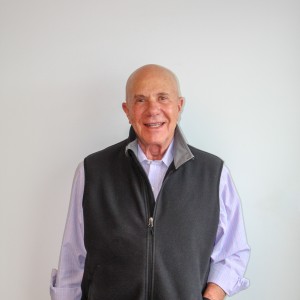The outpouring of applications for this year’s Top Company awards is a testament to the resilience and adaptability of enterprises that do business in the state. Applications for the 35th annual awards numbered in the hundreds, and it was particularly encouraging to see so many companies rebounding from two years of COVID restrictions, with most posting revenue and employee gains approaching—and in some cases, exceeding—pre-pandemic numbers.
This year’s Top Company winners and finalists represent 13 industry categories, plus a startup category for companies in business less than four years. Entrants were judged on three criteria: outstanding achievement, financial performance and community involvement. The judging panel was made up of ColoradoBiz magazine’s editorial board and two representatives from the business community.
WINNER — We Don’t Waste
Denver
What began as a one-man operation run out of founder Arlan Preblud’s station wagon has evolved into an 11,570-square-foot Food Recovery and Distribution center operated by 19 full-time employees. We Don’t Waste looks to keep perishable food out of landfills in order to distribute it to underserved and food-insecure communities of the Denver area.
We Don’t Waste has grown to become the largest food recovery-focused organization in Colorado. As of this year, it has recovered and distributed more than 165 million servings of quality food, equal to more than 61 million meals, to food-insecure community members while also diverting roughly 41 million pounds of food from landfills since 2009.
Part of We Don’t Waste’s success has been due to the company’s fundraising efforts to keep operations excelling, even amid the pandemic. As in-person volunteers waned during COVID-19, the nonprofit turned its focus to available grants. We Don’t Waste won the Bank of America Neighborhood Builders grant, amounting to $200,000 over two years, and the Front Range Waste Division grant. Both helped to support the nonprofit during a crucial time.
Finalist — Common Sense Institute
Greenwood Village
The Common Sense Institute has one clear goal: to educate Coloradans on policies, initiatives and proposed laws that will impact their lives. Founded in 2010, originally under the name Common Sense Policy Roundtable, CSI has become a juggernaut of information Coloradans can rely on to develop informed views on new policies, proposals and laws. Understanding its sphere of influence, CSI doesn’t just help educate the people of Colorado, it provides information to aid those in positions of power as well. In 2021, CSI hosted the inaugural Free Enterprise Summit, an event that featured the release of the “Colorado Free Enterprise Report” and “The Rankings Book: 2022 Edition,” which has served as a road map for policymakers across the state.
Nonpartisanship is one of the organization’s guiding principles. “We believe it is critical to work across the aisles on positive solutions to address Colorado’s biggest challenges,” says CSI Director of Communications Cinamon Watson. “All research is conducted from this lens, and the company culture is based on it — collaborative, diverse, open.”
The nonprofit has shown no signs of slowing down. Among all Colorado think tanks, CSI measured in at 59.5% of the total mentioned volume of online discussions and mentions. As of June this year, CSI had garnered more than 300 media mentions, which puts CSI well on its way to surpassing its number of 346 for 2021.
FINALIST — Youth on Record
Denver
Youth on Record works with more than 3,000 young people annually to provide enhanced art- and music-centric programs to some of Denver’s most under-resourced communities.
“YOR’s education, music and community programs are designed to help young people become more free, more rooted in their personal power, and better able to thrive in spite of systems and circumstances that dis-empower and marginalize them,” YOR’s website states.
Part of YOR’s educational model is the fact that teachers and instructors are all local and professional musicians. It takes an artist to teach art, and YOR knows that investing in marginalized musicians is a way to continue to support potential future educators. Currently building a Music & Entertainment company, YOR wants to create a pathway for aspiring artists that re-imagines the talent landscape.
“The design for the M&E company emerged through conversations with YOR’s oldest participants (ages 17-24) and its Teaching Artist staff members, as well as through conversations and dialogue with industry professionals who have identified gaps in the training, preparation, and professional development for creators of color and other minoritized groups,” the company says.
YOR’s M&E company would be the first of any agency groups in the Western region to prioritize, support and promote artists specifically from minority communities.



